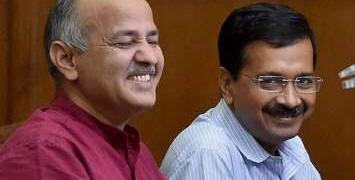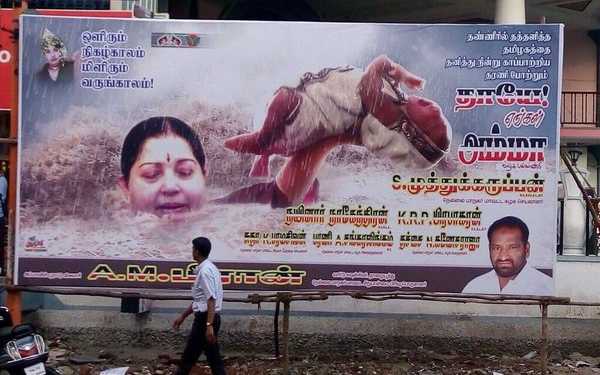Two weeks back when Chennai was inundated for the first time, I received a message, which was a satire.
“People are searching for the pair of frogs they married in June, praying for rains and separate them”
It is a fact that Chennai has received such a heavy rain fall after one hundred years. First, let me explain why I don’t believe the global warming as the cause. If there was a similar heavy rain fall before hundred years, when the earth was relatively far cooler, something else might have caused it. Anyway, topic of today’s discussion is not global warming. That can be dealt later. The issue at hand is – “Why Chennai was under deluge”?
It is not only Chennai, but take any two tier city or a growing town, it has become common that roads are flooded even when it rains for two days continuously. And these cities were not flooded twenty years back (only slipper roads covered with mud was the problem, back then). Almost all cities have overgrown in the last two and half decades, after PV Narasimha Rao had initiated economic reforms. These reforms have increased not only the purchasing power of common man (a new higher middle class cropped up), but changed the mindset of people, increasing the greed.
The fact that Adyar river was in the middle of Chennai (like the Mithi river across Mumbai) is an example of old way of town planning, leaving sufficient free space for the rain water to flow and get absorbed by earth. Increased concrete cover had practically forced the water to flow on the roads (it is normal that we fill our drains with all litter that we can throw into it) and on low lying areas, water started entering into houses.
In developed countries, despite living in match-box apartments for the week, people prefer to have their houses in the country side. In India, the economic growth has not evolved over time, but thrust upon the people in shorter span of time. Confused with sudden riches, everyone wanted a home in the place where there are proper facilities. The growth had concentrated first in Metros and then percolated to tier two cities, albeit slowly and entered small towns only recently. This demand for city homes was exploited by builders and notoriously corrupt government bodies, when new layouts and projects were sanctioned. This has resulted in continuous decrement in the size of water bodies that were primarily collecting rain water and in many places these ponds have simply vanished into thin air.
The interest exhibited by authorities in sanctioning new projects was missing in planning proper drains (not only drains, it is normal that a new colony gets a road only after existing without it for at least a decade). This is ghastly evident in the Delhi suburbs. Even the famous Gurgaon city that has come up in a beautiful way did not have a proper public transport system, making it a city only for those, who could afford a car.
Fortunately, Mumbai had inherited a vast drainage system from the British (apart from the Marine Drive, which still is the best road). Though Delhi has Yamuna adjacent to it, it takes days, if not weeks to drain the rain water after heavy rains. In Kolkata, people stopped complaining after being ruled by the left for three decades, and it will take another decade for them to demand civic facilities.

Unfortunately, Chennai had another priority – water. Yes, after being notorious for the lack of water, Chennai had gone in a big way for rain harvesting and probably has the best rain harvesting system in the country. Does it make the city administration or the planners of Government less culpable for the current devastation? No. In fact, when they were planning for rain harvesting, had the administration kept it in mind to have rain harvesting facilities in the open places, which were natural rain water paths, current deluge would have contributed to water table rising.
Of course, I agree that in the outskirts of the city, water table had rose in the last fifteen years. These were traditionally low lying areas, where new colonies have come up. But, when the plans were sanctioned I wonder why there was no care taken to include drains?
And in the main city, if it rains even normal for more than a day, that part of the city was always inundated.
It is of course a fact that no amount of planning might have prevented current situation given the level of rains in the last two weeks. But, the current situation of Chennai is a wake-up call for the Governments to review their targets of growth and planning.
Growth, because, it is absurd to have all growth concentrated in few cities. Rather than investing in the Metros, where the Municipal Corporations have budgets that are more than some states and became heavily corrupt (Like in Mumbai, every year contractor earns by re-laying same brick road), Government should focus more on developing small cities. Further growth of any city that has crossed or touching five million population may be discouraged. Given the size of Indian population, the centre shall target at least one thousand smart cities, to start with. One hundred smart cities is a target that is far below being called an ambitious one. All cities that have a population of three to four lacs population shall be having a proper planning division for further expansion. To help these, state governments shall back the local administration by providing regular (we can’t expect continuously) electricity and connectivity to other cities.
Local planning authorities shall do a survey of water bodies, as marked at the time of British (they have these records, unless threw away on purpose) and ensure the same amount of open places. The fact that successive governments in Delhi (including Arvind Kejriwal) competed with each other to regularize illegal colonies had set a bad example and is being rigorously exploited in other cities as well.
Finally, our notorious judiciary shall not intervene in the process of Governance and stay any demolitions that are authentic, delaying actions. If they want, they can broker peace and regularize, but don’t keep things hanging.
Of all the establishments, again it was the Indian Army that played the role of savior, though nobody pauses to thank them, except forwarding or liking Facebook messages.
Hope, there may come a day, when there would not be any need to call the army for any support for domestic problems.




























